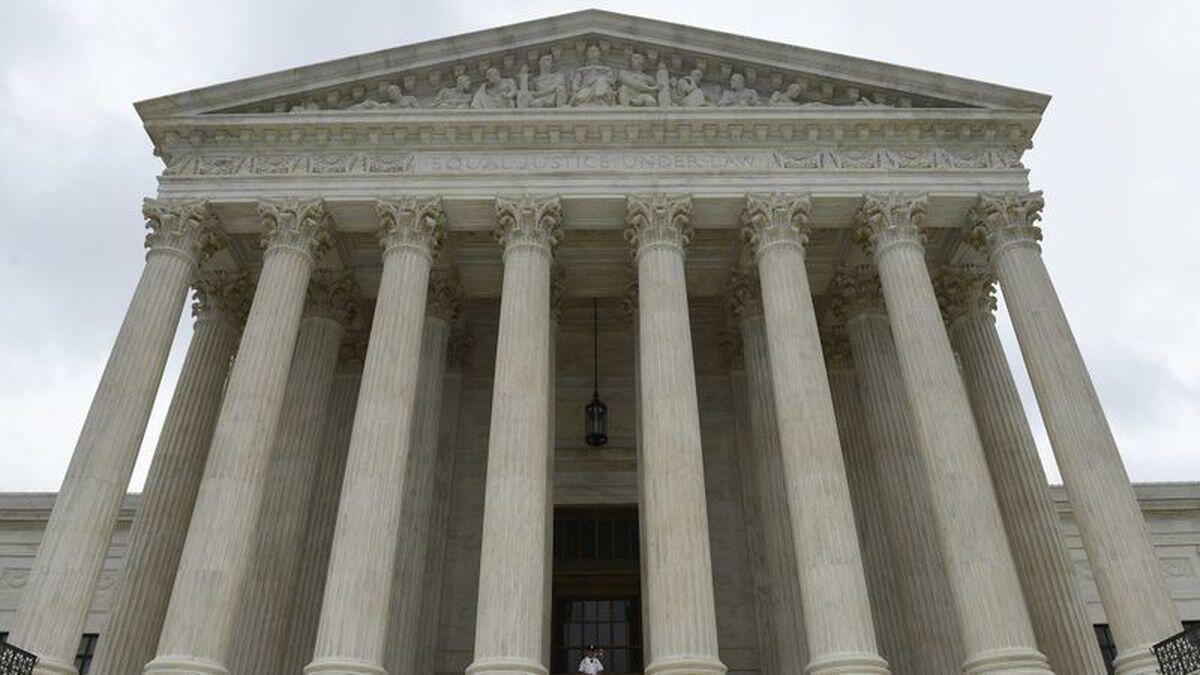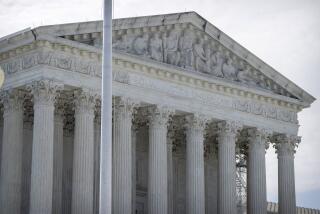Supreme Court halts Texas execution over Buddhist spiritual advisor

- Share via
Reporting from Washington — The Supreme Court has taken a new and stronger stand against religious discrimination with liberals and most conservatives agreeing to halt a Texas execution.
By a 7-2 vote, the court granted an emergency stay for Patrick Murphy and ruled prison authorities may not proceed “unless the state permits Murphy’s Buddhist spiritual advisor or another Buddhist reverend of the state’s choosing to accompany Murphy in the execution chamber during the execution.”
In a concurring opinion, Justice Brett M. Kavanaugh noted that Texas would have allowed a Christian or Muslim inmate to have a state-employed Christian or Muslim religious advisor present in the execution room.
“In my view, the Constitution prohibits such denominational discrimination,” Kavanaugh wrote. The state may choose to keep all clerics and religious advisors from entering the execution chamber, he said.
But Kavanaugh added, “What the state may not do, in my view, is allow Christian or Muslim inmates but not Buddhist inmates to have a religious advisor of their religion in the execution room.”
Justices Clarence Thomas and Neil M. Gorsuch dissented from the order without explanation.
Thursday evening’s order in Murphy vs. Collier represents a partial reversal from the court’s handling of a similar case from Alabama in early February. Then, the court by a 5-4 vote refused to block the execution of a Muslim inmate who said his spiritual advisor was prevented from accompanying him to the execution.
Justice Elena Kagan called this “profoundly wrong” because it reflected government discrimination based on religion. Alabama authorities had argued that only state prison employees were allowed inside the small execution room. They also said the inmate had been waited too late to present his claim.
The Texas emergency appeal came as the court has been debating the role of religion in a case involving the prominent public display of a cross. In a Maryland case, the justices will decide whether the government has gone too far to favor the Christian religion. In her dissenting opinion, Kagan had argued the Constitution does not allow the government to favor one faith over another.
The Becket Fund for Religious Liberty welcomed the court’s decision in the Texas case.
“Religious liberty won today. The Supreme Court made it clear that the 1st Amendment applies to every American, no matter their faith,” said Eric Rassbach, a senior counsel at Becket. “As we said in our brief to the court, you can’t give fewer rights to Buddhists than you give to Christians or Muslims. In his last moments, a condemned man can receive both comfort from a minister of his own faith, and equal treatment under the law.”
Murphy was sentenced to death after he had escaped from prison and shot and killed a police officer.
In the future, the state prison authorities have two options when carrying out an execution, Kavanaugh wrote. They may “allow all inmates to have a religious adviser of their religion in the execution room; or) allow inmates to have a religious adviser, including any state-employed chaplain, only in the viewing room, not the execution room. Things can go wrong and sometimes do go wrong in executions, as they can go wrong and sometimes do go wrong in medical procedures. States therefore have a strong interest in tightly controlling access to an execution room in order to ensure that the execution occurs without any complications, distractions, or disruptions.”
More stories from David G. Savage »
More to Read
Get the L.A. Times Politics newsletter
Deeply reported insights into legislation, politics and policy from Sacramento, Washington and beyond. In your inbox twice per week.
You may occasionally receive promotional content from the Los Angeles Times.











